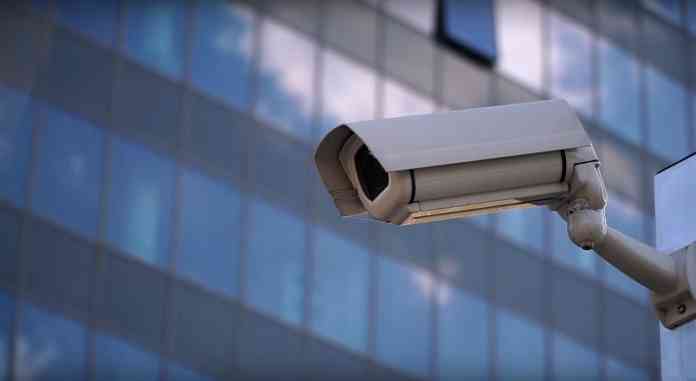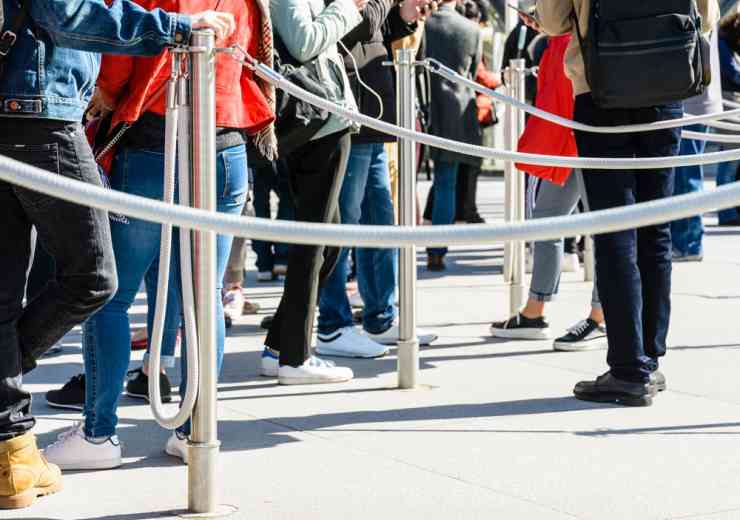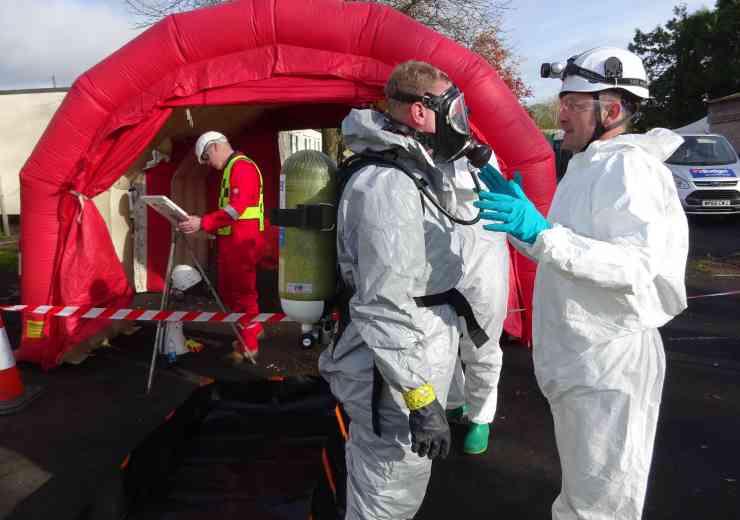
Security, a hidden workforce?
Coronavirus, furlough, pandemic, and lockdown. Four words which have governed our lives for a large chunk of 2020 in every aspect from the way we work, to the produce we eat. The world has never experienced this level of lockdown due to a virus and the ill-prepared shine through. Needless to say, there are 100s if not 1,000s of ways which the virus and government measures have impacted the private and professional security industry.
The UK is the fifth largest economy in the world after USA, China, Japan and Germany and the three main sectors which contribute most to the UK’s gross domestic product (GDP) are services, manufacturing, construction and tourism. The services sector is naturally the largest including a wide range of different industries from food to retail to finance. But have you ever taken the time to think how security plays a role in each and every sector? Don’t believe us? There are few sectors which do not use electronic devices in some part of their business process and passwords (amongst other protective software) are cyber security. Tourism requires border control and security measures to ensure passengers fly/travel safely with personnel supporting police roles. Manufacturers produce the alarms, locks and electrical equipment for homes, schools, and businesses. Physical security officers look after premises to ensure our safety, both day and night when necessary. Engineers install vital security measures and training centres provide the invaluable knowledge to tomorrow’s workforce today.
Security is everywhere you look, you may not see it, but it is there, not to mention it goes hand in hand with health and safety. Funnily enough, for security reasons the industry has not always been at the forefront of people’s minds. It flows nicely into our daily lives which means it does not always need to be waving for attention.
As with any major global event, industries, businesses, and people begin to emerge who may not have been visible before to all. In March 2020 the UK government announced a list of key workers after closing schools in an attempt to stem the spread of Covid-19. Only children of ‘key workers’ would be allowed to continue their schooling at their school premises, the rest were sent home. Among these key industries ‘public safety and national security’ was named, although this only referred to police, support staff, Ministry of Defence civilians, armed forces personnel, fire and rescue staff, as well as those responsible for border security, prisons and probation staff.
The professional security industry is so much more than one sector. We are a blanket force of protection and safety, the first layer of response when an incidence occurs. So where did the government list leave the professional security industry in their key worker list?
A closer look
Without members, the BSIA would not be an authoritative voice and reliable source of information. These companies drive us to be our best and it is imperative they feel listened to, not just in times of crisis, but always. Just like that, the UK went into a state of lockdown and businesses were forced into relying on remote working or no work at all. Employers across all industries who were not prepared, faced many challenges including dealing with outdated equipment and connecting to files and servers via cloud services.
For the BSIA it was up to us and our close ties with government and industry to have security formally recognised on the key worker list. Thankfully prior to lockdown some meetings with BSIA members took place and their knowledge of dealing with unknown situations allowed many others to prepare in advance for what was to come.
Businesses in security systems saw themselves following the government's guidelines in terms of carrying out essential works only. These included key installations and emergency support for contracted clients in the event of faults or breakdowns, which also meant a suspension of periodic routine inspection visits until guidelines eased. One member spoke to us about being awarded ‘Key Worker Contractor’ Status from their local NHS Hospital. Their requirements have been dynamic with wards being converted to Covid 19 restricted access spaces.
Security systems are there to support the frontline staff and ensure safety with access controlled doors and video surveillance in place.
The vacant property sector also noticed a change as businesses and offices began to close. Gideon Reichental, Commercial Sales Manager at Clearway Services, said in June: “These are exceptional times. The high street, retail & trade parks and so much more are closed down and streets are empty. No one really had the time to sit and ponder this situation and the impact that it may have - as specialists in vacant property we have. We have been sharing our insight into vacant property protection to assist property managers and the simple steps they can take to ensure that their premises remain safe. From ensuring security systems are working correctly to safely storing or removing stock and valuable items. Up until now these have been issues that have only affected property that is vacant/empty because it is being sold or let but with the lockdown being extended a further three weeks this is now affecting a whole range sites that have closed down.”
We asked Don Robins, chair of the BSIA Information Destruction section, for three environmental pros and cons to the lockdown.
On the former he said: “Firstly, the roads are quieter, saving up to 20 per cent of time travelling between clients. Secondly, there is an opportunity for the world to now see the positive impact that less planes and general travel is having on the environment as a whole. Thirdly, throughout this pandemic, we have seen a greater sense of community and kindness. This has shown the positive effect of supporting each other to make things happen and the importance of protecting those who are vulnerable.”
Discussing the cons, Robins said: “Firstly, Covid-19 has heavily impacted the tourism and entertainment industry, now and into the future, and this will greatly affect the amount of security required to support this industry. Secondly, home working and vulnerability to cyber-attacks will need to be considered carefully. Thirdly, the new attitude towards home working may accelerate the trend towards going paperless, potentially reducing the requirement for as much confidential shredding.”
The question remains are we, the professional security industry a hidden workforce? That’s up for each member of the industry to discuss, but here are a few perspectives we received when we asked that very question:
“I believe they are probably the forgotten workforce as they provide support services.”
Naz Dossa, CEO, PeopleSafe.
“I believe it is because we are seen as protecting property and not directly saving human lives. Our role is still vital but of course naturally is hidden behind more direct and obvious industries related to emergency services, NHS and Social Care. I don't see that anything needs changing in this regards as long as it is recognised that we are essential workers too.”
Sharon Ramsey, General Manager, Elmdene International Ltd.
This article was written by the British Security Industry Association (BSIA).













